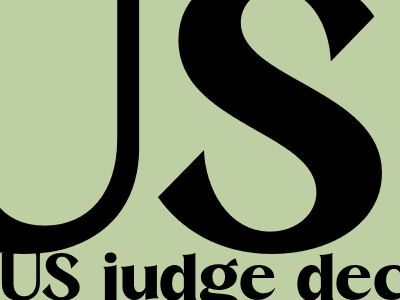
US Judge Declares Louisiana's Ten Commandments Law Unconstitutional
Federal Judge Rules Display Violates Establishment Clause
Court Finds Monument Has 'No Secular Purpose'
A federal judge has ruled that a monument displaying the Ten Commandments on the grounds of the Louisiana State Capitol is unconstitutional. The judge found that the display violates the Establishment Clause of the First Amendment, which prohibits the government from endorsing or promoting religion.
The lawsuit was filed by the American Civil Liberties Union (ACLU) on behalf of three Louisiana residents. The plaintiffs argued that the monument's display on public property sent a message that the government endorsed the Ten Commandments and Christianity. The state defended the monument, arguing that it had a secular purpose of promoting morality and historical significance.
In his ruling, U.S. District Judge Brian Jackson rejected the state's arguments. He found that the monument's primary purpose was to promote religion, and that it had no secular purpose. "The court finds that the Ten Commandments monument on the grounds of the Louisiana State Capitol has no secular purpose and serves only to endorse and promote religion," Jackson wrote in his ruling. "The monument therefore violates the Establishment Clause of the First Amendment."
The ruling is a victory for the ACLU and its plaintiffs. It is also a reminder that the government cannot endorse or promote religion on public property. The Ten Commandments monument is likely to be removed from the State Capitol grounds in the coming weeks.
Background of the Case
The Ten Commandments monument was erected on the grounds of the Louisiana State Capitol in 2017. The monument was donated by the Louisiana Family Forum, a conservative Christian group. The ACLU filed a lawsuit challenging the monument's display in 2018.
The state defended the monument, arguing that it had a secular purpose of promoting morality and historical significance. The state also argued that the monument was protected by the First Amendment's free speech clause.
The Court's Ruling
In his ruling, Judge Jackson rejected the state's arguments. He found that the monument's primary purpose was to promote religion, and that it had no secular purpose. Jackson also found that the monument violated the Establishment Clause of the First Amendment.
The Establishment Clause prohibits the government from endorsing or promoting religion. The Supreme Court has held that the Establishment Clause requires the government to maintain a strict separation of church and state.
Significance of the Ruling
The ruling is a victory for the ACLU and its plaintiffs. It is also a reminder that the government cannot endorse or promote religion on public property.
The Ten Commandments monument is likely to be removed from the State Capitol grounds in the coming weeks. The ruling is a reminder that the government must maintain a strict separation of church and state.